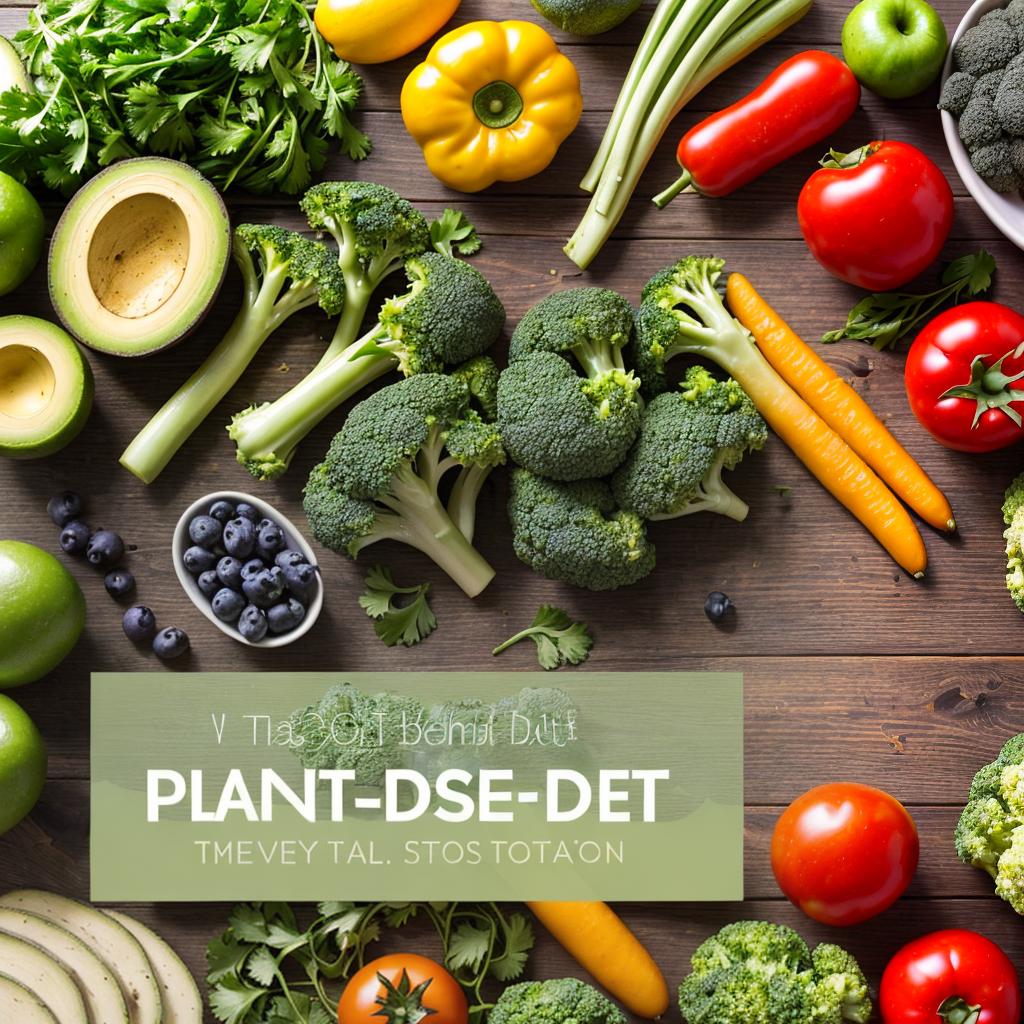In recent years, the popularity of plant-based diets has soared, and for good reason. Not only are they kinder to the environment, but they also offer a wide range of health benefits. Whether you’re looking to reduce your carbon footprint or improve your overall well-being, transitioning to a plant-based diet can be a fulfilling and rewarding journey. This step-by-step guide will help you make the switch seamlessly, ensuring a smooth transition towards a more plant-focused lifestyle.
Understanding the Plant-Based Diet
Before diving into the transition process, it’s essential to grasp the basics of a plant-based diet. At its core, a plant-based diet emphasizes foods derived from plants, such as fruits, vegetables, grains, legumes, nuts, and seeds. This diet excludes or minimizes animal products like meat, dairy, and eggs. There are various reasons why people choose this diet, including health, ethics, and sustainability.
Step 1: Educate Yourself
The first step in transitioning to a plant-based diet is to educate yourself. Gather information about the benefits of plant-based eating, nutritional requirements, and meal planning. Familiarize yourself with plant-based protein sources, essential vitamins and minerals, and potential dietary deficiencies. Knowledge is your most potent tool during this journey.
Step 2: Set Clear Goals
Determine your motivations for adopting a plant-based diet. Are you doing it for health reasons, environmental concerns, animal welfare, or a combination of these? Setting clear and meaningful goals will help you stay committed throughout the transition.
Step 3: Start Slowly
Transitioning to a plant-based diet doesn’t have to happen overnight. Start by gradually reducing your consumption of animal products. For example, you can designate meatless Mondays or choose one meal a day to be plant-based. Slowly replace animal-based ingredients with plant-based alternatives in your favorite recipes.
Step 4: Explore Plant-Based Foods
Take this opportunity to explore a wide variety of plant-based foods. Experiment with new vegetables, grains, legumes, and spices to discover exciting flavors and textures. The more diverse your plant-based diet, the more enjoyable and nutritious it will be.
Step 5: Plan Balanced Meals
Ensuring your plant-based diet is nutritionally balanced is crucial. Include a mix of fruits, vegetables, whole grains, legumes, nuts, and seeds in your meals to provide essential nutrients. Consider consulting a registered dietitian to help you create a balanced meal plan tailored to your needs.

Step 6: Read Labels Carefully
When shopping for packaged foods, pay close attention to labels. Some seemingly plant-based products may contain hidden animal-derived ingredients. Familiarize yourself with common animal-derived additives to make informed choices.
Step 7: Find Support
Transitioning to a plant-based diet can be challenging, especially if your friends and family have different eating habits. Seek support from online communities, social media groups, or local plant-based meetups. Surrounding yourself with like-minded individuals can provide motivation and helpful tips.
Step 8: Learn to Cook Plant-Based Meals
Cooking your meals is an essential skill for a successful plant-based transition. Invest time in learning new cooking techniques and recipes. There are countless online resources, cookbooks, and cooking classes that cater specifically to plant-based cuisine.
Step 9: Stay Informed and Adapt
As you progress on your plant-based journey, stay informed about the latest developments in plant-based nutrition and food options. Be open to adapting your diet as needed to ensure you’re meeting your nutritional requirements.
Step 10: Practice Sustainability
One of the significant advantages of a plant-based diet is its positive impact on the environment. Support sustainability by choosing locally sourced, seasonal produce and reducing food waste. By doing so, you’re contributing to a greener planet.
Frequently Asked Questions (FAQs)
1. Is a plant-based diet suitable for all age groups?
Yes, a well-planned plant-based diet can be suitable for individuals of all age groups, including children and seniors. However, specific nutritional needs may vary, so it’s essential to consult with a healthcare professional or dietitian for personalized guidance.
2. How can I ensure I’m getting enough protein on a plant-based diet?
There are plenty of plant-based protein sources, including tofu, tempeh, legumes (such as lentils, chickpeas, and beans), quinoa, nuts, and seeds. Combining different protein sources throughout the day can help you meet your protein needs.
3. Will I miss out on essential nutrients by eliminating animal products?
A well-balanced plant-based diet can provide all the essential nutrients your body needs. However, it’s important to pay attention to nutrients like vitamin B12, iron, calcium, and omega-3 fatty acids. Consider taking supplements or incorporating fortified foods to meet these requirements.
4. Can I still enjoy my favorite dishes on a plant-based diet?
Absolutely! Many traditional dishes can be adapted to a plant-based version without sacrificing flavor. There are countless plant-based recipes and substitutes available to recreate your favorite meals.
5. Is it more expensive to follow a plant-based diet?
While some specialty plant-based products can be pricier, a plant-based diet can also be budget-friendly. Staples like grains, beans, and vegetables are often affordable and versatile. Planning your meals and buying in bulk can help you save money.
6. How long does it take to transition to a plant-based diet fully?
The transition time varies from person to person. Some people make the switch relatively quickly, while others take months or even years to fully adopt a plant-based diet. It’s important to go at your own pace and focus on gradual and sustainable changes.
Transitioning to a plant-based diet is a meaningful and impactful choice that can benefit your health, the environment, and animal welfare. By following these ten steps, you can navigate the journey smoothly and enjoy the numerous rewards that come with embracing a more plant-focused lifestyle. Remember that every step you take towards a plant-based diet contributes to a healthier, more sustainable future for yourself and the planet.
